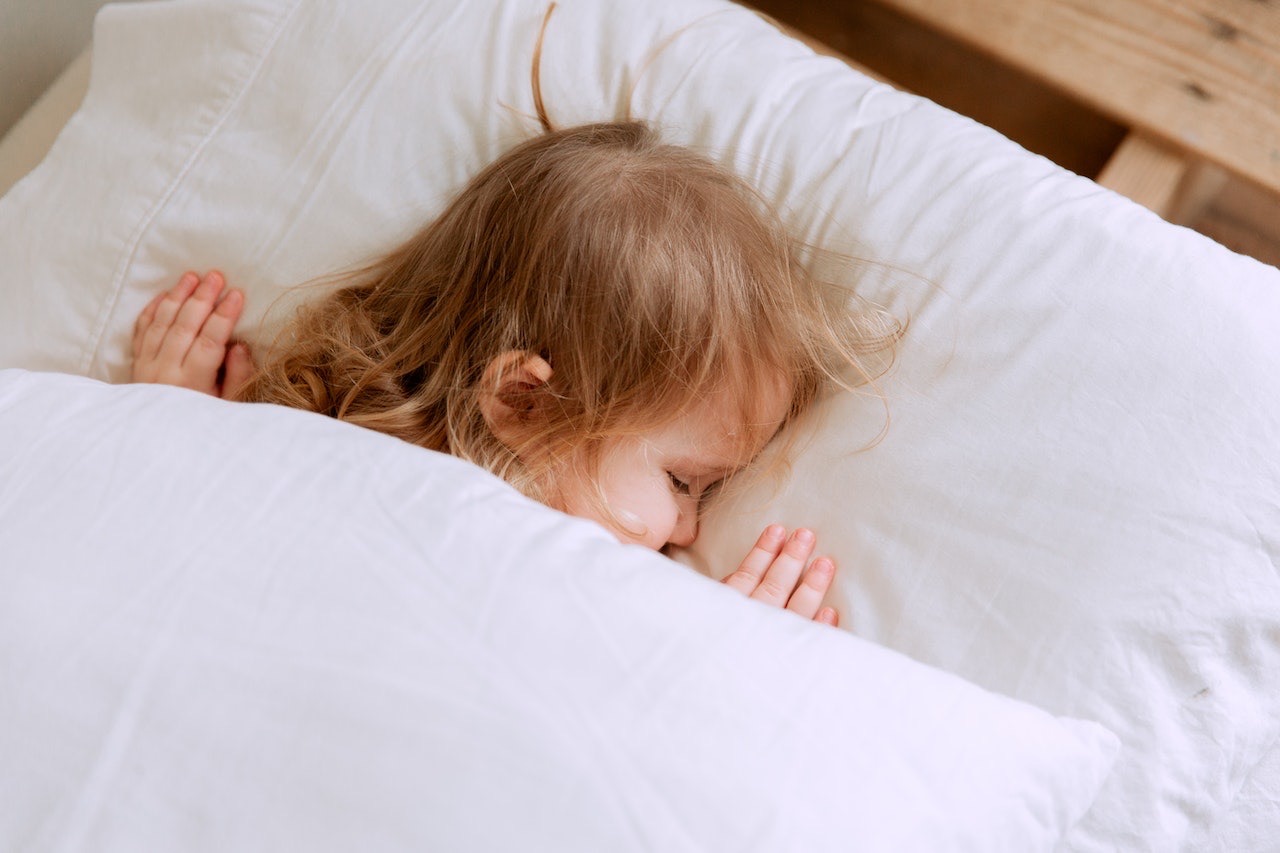Promoting Healthy Sleep for Children: Benefits and Factors
Healthy sleep for children is essential for their mental and physical growth and development. Providing an adequate sleep environment and teaching children healthy sleep habits can greatly affect their health and overall behavior. Understanding the sleep process in children of different ages is very important.
you can also check All you need to know about childhood vaccine
What is the duration of healthy sleep in children?
Children’s sleep varies according to their age stages:
Infants (newborn to one year old):
Their sleep ranges from 14 to 17 hours a day irregularly, as they wake up periodically and frequently to eat and change diapers, and they need to sleep for short and intermittent periods during the day and night.
Young children (ages 2 to age 12):
Young children this age need a long night’s sleep and short sleep periods during the day.
A healthy sleep duration for young children is 10 to 13 hours at night, in addition to a short sleep during the day.
Teenagers (ages 12 and over):
Healthy sleep for teens is 8 to 10 hours a night, but they may have difficulty waking up early due to the changes in their biological sleep clock.
Benefits of early sleeping for children:
Early bedtime is vital to the health and development of children of all ages. Here are some of the benefits of sleeping early for babies:
Promoting growth: Early sleep helps the body to carry out cell repair and regeneration processes. Due to good sleep, children can develop properly, including the development of the nervous, muscular, and immune systems.
Improves mental activity: Healthy sleep enhances children’s mental abilities, memory, and concentration. It helps restore energy and rejuvenate the brain, which increases learning and attention.
Promote public health: Early sleep affects children’s health it makes them more physically and emotionally resilient, and decreases the potential of diseases such as obesity, heart disease, and high blood pressure.
How does late sleep affect their health?
Staying up late can be a common cause of sleep problems in children. It harms their health and development. Here are some of the problems that staying up late can cause your child:
It can increase stress and anxiety levels in children, making it more difficult to relax and fall asleep normally.
The body secretes melatonin during the night hours, and it is the hormone responsible for regulating the sleep-wake cycle. When staying up late for long periods, the secretion of this hormone is affected, which in turn affects the quality of sleep.
Staying up late can make a child more irritable during the day, which affects his ability to focus and pay attention to daily and educational activities.
What are the factors contributing to children’s Healthy sleep disturbances?
Infants and young children:
- Babies and young children may experience discomfort due to teething, colic, nappy, or digestive problems, which affects their sleep.
- They may show some anxiety or fear of things around them, such as loud noises and strangers, which makes it difficult for them to relax.
- They depend on routine to feel secure and stable. Any change in daily routine, such as a change in sleeping place or timing, can cause sleep difficulties.
- children may wake up during the night because they are hungry or thirsty. It is necessary to meet their nutritional needs.
Older children (2 years and above):
- Overstimulation from activities before bed, such as watching TV or using smartphones, affects their ability to relax and fall asleep.
- Children can face emotional stressors such as school problems, friendships, or family events.
- Sleep disorders: Older children can suffer from some sleep disorders, such as insomnia, frequent awakening disorders, and nightmares, which can affect the quality of their sleep.
Some tips to help your baby get a Healthy sleep:
Establish a consistent bedtime schedule that includes quiet activities before bed, such as bathing and reading. Repeat this routine daily to promote a healthy sleep pattern.
Determine a suitable sleeping hour for your child and make sure that he/she gets enough hours of sleep according to his age’s needs. And maintain regularity in the hour of sleep, even on weekends.
Ensure that the bedroom is dark, quiet, and comfortable for the child. A favorite doll or familiar blanket may help calm him and promote sleep.
Talk to your child and listen to his concerns and problems. He may need to feel secure and emotionally stable before bed. Use calming techniques like deep breathing and simple meditation to help him de-stress and relax before bed.
If you want to know more about Child appeal Projects click here







